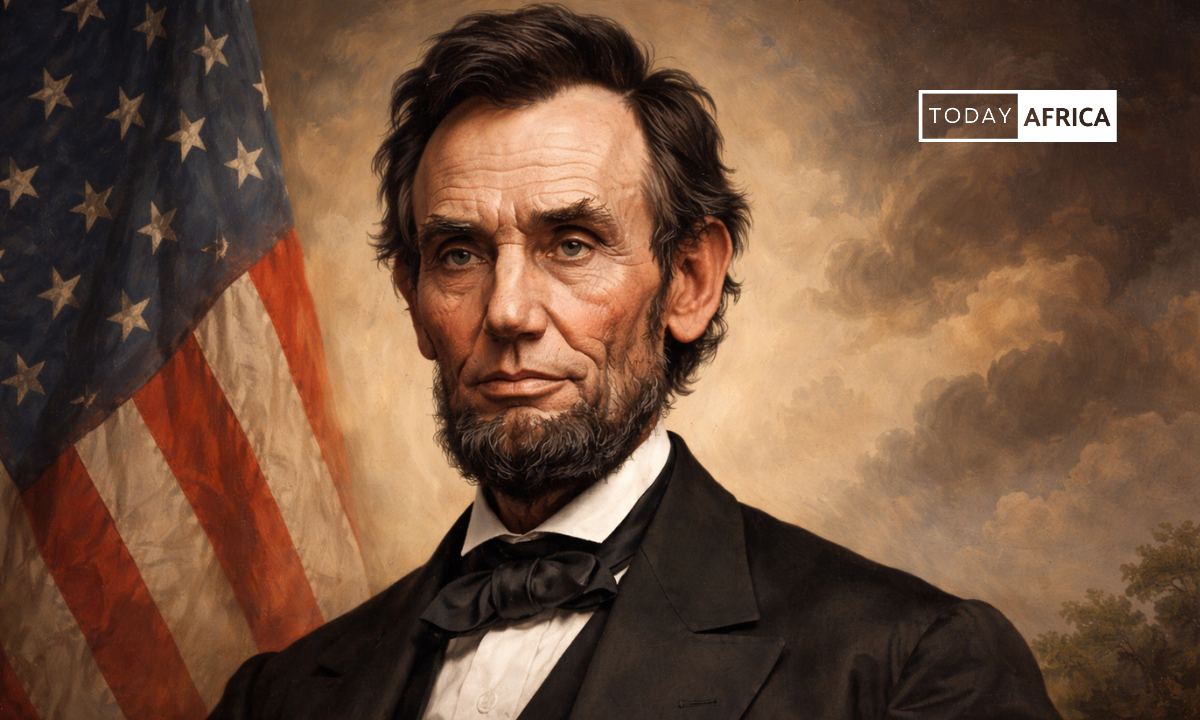Is TikTok getting banned? Does that actually mean an end to TikTok for Americans? What of the impact the company and content creators in Africa.
In recent months, there has been a hardening of views toward the wildly popular social media app TikTok on Capitol Hill, among many U.S. state governments, and some officials in the Biden administration.
Congressional legislation would potentially shut off U.S. users’ access to TikTok roughly six months from now, disappointing its primarily young viewership.
The US Senate has voted in favour of legislation that could ban TikTok in the country – if its Chinese owners refuse to sell.
The bill passed by a wide margin in the Senate on 23 April after being voted through in the House of Representatives.
But does the ban actually mean an end to TikTok in the US? How would it work – and could something similar happen in the UK?
Fear of Policymakers
The fear, expressed by many policymakers, is that TikTok’s parent company ByteDance, which has close links to the Chinese Communist Party, could be used as a tool to gather information on its users (more so even than that collected by U.S.-based social media companies) and could also censor commentary critical of Beijing, or be used as a tool to spread disinformation.

How greatly should they be concerned? As I noted in my most recent book, Beijing’s Global Media Offensive, which focused on China’s information and influence efforts, “TikTok. For instance, which harvests vast amounts of users’ data, claims that it has not given any users’ information to Beijing.
But the U.S. government is investigating whether the company has exfiltrated a range of data back to China. (Another app owned by ByteDance, Douyin, essentially the Chinese version of TikTok, clearly employs censorship and user monitoring.)
There are already examples of TikTok seeming to remove comments from the app, such as comments made outside China that were critical of Beijing.
See Also: Top 16 Small Business Grants Michigan This Year
And with Beijing becoming more sophisticated in its disinformation tactics in recent years. They were very clumsy in the past—there is a genuine concern that TikTok, along with Chinese disinformation on other platforms, now more sophisticated, could be used to affect voters in Australia, Canada, Europe, the United States, and other countries.
More likely than not, it appears now, that if Beijing will not sell the U.S. subsidiary of TikTok to a U.S. firm—something it has firmly rejected, as it sees TikTok as a Chinese crown jewel—the giant social media app might indeed wind up being banned in the United States.
What Does the Bill Mean?
The bill gives Chinese company ByteDance nine months to sell its stake in the US version of TikTok – with the possibility of a three-month extension to finalise a deal – or the app will be blocked.
White House national security adviser Jake Sullivan said the goal is ending Chinese ownership – not banning TikTok.
But it is unclear if China would approve any sale or if it could go ahead within the timeframe.
There’s also a question mark over who would buy it – although if the legislation is passed, it could make the sale price cheaper.
“Somebody would have to actually be ready to shell out the large amount of money that this product and system is worth,” said Stanford University researcher Graham Webster, who studies Chinese technology policy and US-China relations.
“But even if somebody has deep enough pockets and is ready to go into negotiating to purchase, this sort of matchmaking on acquisitions is not quick.”
What Would it Mean for Users?
The app is used by about 170 million Americans.
If it is banned, it would be removed from app stores including Apple and Google, and blocked on web hosting services.

This would remain in place until ByteDance sold TikTok.
However, it is likely users could still access the app using virtual private networks (VPNs) that bypass restrictions, according to telecom analyst Roger Entner.
Why is the US Worried About TikTok?
Both the FBI and Federal Communications Commission have warned that TikTok owner ByteDance could share user data, such as browsing history, location and biometric identifiers, with China’s authoritarian government.
TikTok said it has never done that and would not do so if asked.
The worry stems from a set of Chinese national security laws that compel organisations to help with intelligence gathering.
The US director of national intelligence has also said she “cannot rule out” that China would use TikTok to influence US elections.
Senate Commerce Committee chair Maria Cantwell said the move to force TikTok’s sale was not aimed at “punishing” ByteDance, TikTok, or other companies.
“Congress is acting to prevent foreign adversaries from conducting espionage, surveillance, maligned operations, harming vulnerable Americans, our servicemen and women, and our US government personnel,” she said.
What happens now?
President Joe Biden will now sign the legislation.
He had already committed to signing the bill if it passed, despite his 2024 campaign officially joining TikTok in February.
However, the company will likely launch a legal challenge against the bill, arguing it will deprive the app’s 170 million US users of their First Amendment rights, which protect freedom of speech.
The company will need to file any legal challenges within 165 days of the bill being signed by the president.
It could also face opposition from TikTok’s content creators who rely on the platform for their income, while China has previously said it would oppose a forced sale of the popular app.
In November, a US judge blocked a Montana state ban on TikTok use after the company sued.

The passage of the bill could also change depending on the outcome of the November election.
Despite Donald Trump vowing to ban the app in 2020 on national security grounds – with his administration brokering a deal that would have had US corporations Oracle and Walmart take a large stake in TikTok – the presidential hopeful no longer supports a ban.
Impact of Potential TikTok Ban on the Company
At the heart of the matter is the fear that TikTok, with its vast user base primarily comprising young Americans, could serve as a conduit for Chinese government surveillance and influence operations.
The concern is not unfounded, given China’s track record of stringent data laws and its history of leveraging technology platforms for state interests.

While TikTok vehemently denies any wrongdoing and insists on its independence from Beijing’s influence, the mistrust persists.
If the ban materializes, it would mark a significant setback for TikTok as a company. With approximately 170 million users in the US alone, losing access to this market would deal a severe blow to its user base and revenue streams.
Moreover, being delisted from major app stores and blocked by web hosting services would cripple its global reach and brand visibility. The uncertainty surrounding the potential sale of its US operations further exacerbates the company’s predicament, leaving its future in limbo.
From a broader perspective, the ban underscores the escalating tensions between the US and China in the realm of technology and information warfare. It reflects the growing assertiveness of policymakers in safeguarding national interests against perceived foreign threats, even at the cost of disrupting the operations of multinational tech giants like TikTok.
However, the impact of the ban extends beyond TikTok as a corporate entity. It sends a chilling message to the broader tech industry about the perils of operating in a geopolitical landscape fraught with suspicion and regulatory scrutiny.
The episode serves as a stark reminder of the inherent risks associated with entrusting sensitive data to platforms owned by foreign entities, especially those with ties to authoritarian regimes.
Impact of Potential TikTok Ban on Content Creators in Africa
For many content creators in Africa, TikTok has emerged as a transformative platform that transcends geographical barriers and amplifies their voices on the global stage.
From dance challenges to comedic skits to educational content, African creators have carved out a niche on TikTok, garnering millions of followers and reshaping narratives about the continent’s diverse cultures and traditions.
However, the looming threat of a TikTok ban threatens to upend the aspirations of African content creators and disrupt their livelihoods.

With the potential loss of access to the US market, which represents a significant source of viewership and monetization opportunities, African creators face the prospect of diminished reach and income streams.
Moreover, the ripple effects of the ban, such as delisting from major app stores and web hosting services, would further compound the challenges faced by content creators in navigating an increasingly uncertain digital landscape.
Beyond the immediate economic impact, a TikTok ban would deprive African creators of a vital platform for self-expression and cultural exchange. TikTok has democratized content creation, providing a level playing field for creators irrespective of their background or resources.
By fostering a vibrant community of creators from diverse backgrounds, TikTok has become a catalyst for innovation and creativity in Africa, empowering individuals to tell their stories on their own terms.
In light of these developments, it is imperative for policymakers and stakeholders to consider the broader implications of a potential TikTok ban on content creators in Africa.
See Also: Wave is the Only African Startup on YC’s Top-earning Startup List
Efforts should be made to safeguard the interests of creators and preserve avenues for artistic expression and cultural representation in the digital sphere.
Moreover, alternatives to TikTok should be explored to ensure that African creators have access to platforms that enable them to thrive and connect with audiences worldwide.
What Has TikTok Said About the US Bill?
TikTok urged senators to listen to their constituents before taking any action on the bill, which it said amounted to a ban.
A TikTok spokesperson said: “This process was secret and the bill was jammed through for one reason: It’s a ban.
“We are hopeful that the Senate will consider the facts, listen to their constituents, and realise the impact on the economy, seven million small businesses, and the 170 million Americans who use our service.”
TikTok has also pointed out that there is no Chinese state ownership within ByteDance or representation on its board.
Crucially, it says it is incorporated outside of China – a fact that seeks to distance TikTok and ByteDance from coming under the influence of the Chinese intelligence law on information-sharing.
















